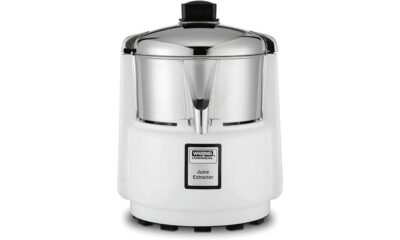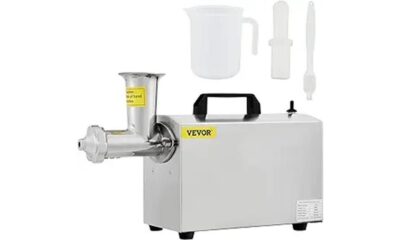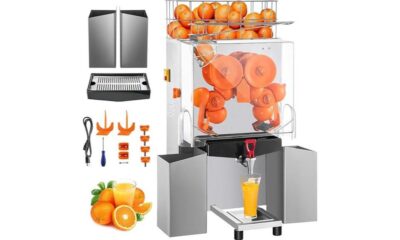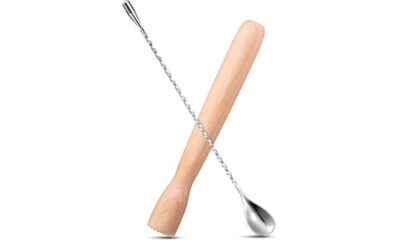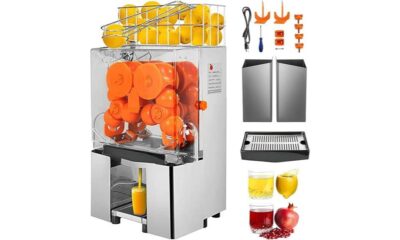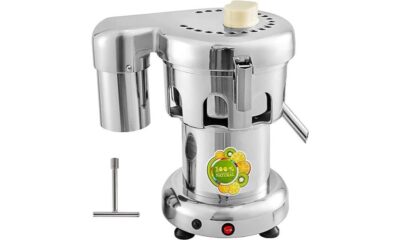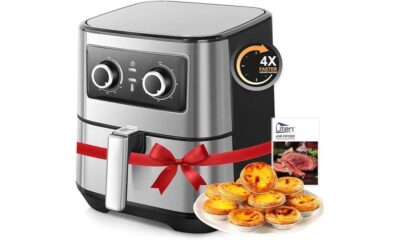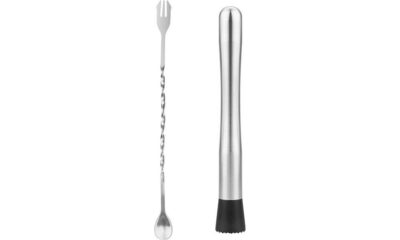Coffee Roasting
What Do Commercial Coffee Roasting Machines Use For Motors To Turn The Drum
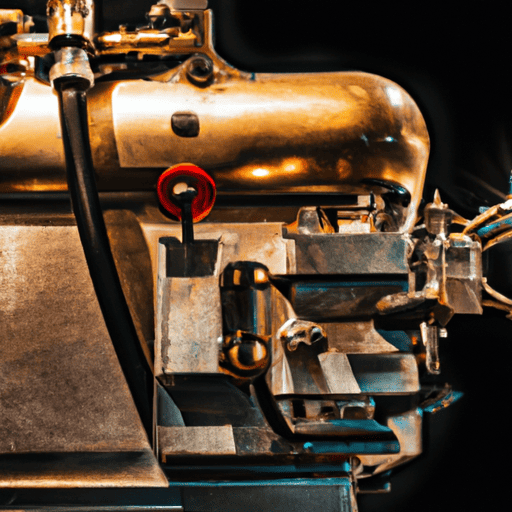
As a coffee roaster, I’ve always been fascinated by the machines that bring my beans to life. One of the key components of any commercial coffee roasting machine is its motor, which drives the drum that holds the beans through the roasting process. But what kind of motor do these machines use, and why?
In this article, I’ll explore the types of motors used in commercial coffee roasting machines and their benefits and drawbacks. The importance of motors in coffee roasting cannot be overstated. The motor not only rotates the drum but also controls its speed and direction, which can have a significant impact on how evenly the beans are roasted.
Additionally, as most commercial coffee roasters roast large batches at once, they need powerful motors that can handle heavy loads without overheating or burning out. With so much depending on this vital component, it’s essential to understand what types of motors are available and which ones are best suited for coffee roasting applications.
Key Takeaways
- Brushless motors are preferred in commercial coffee roasting machines due to their longer lifespan and higher efficiency.
- Motor size, torque, and speed are important factors that affect roast quality, and torque requirements depend on drum size and weight capacity.
- AC motors are cost-effective and require less maintenance, while DC motors offer higher torque at low speeds and precise speed control but are more expensive.
- Proper maintenance of the motor, including frequency control and lubrication techniques, is essential for optimal performance and longevity.
Understanding the Importance of Motors in Coffee Roasting
You can’t have a perfectly roasted coffee without a reliable motor to turn the drum – it’s the heart of every commercial coffee roasting machine! The motor is responsible for ensuring that beans are evenly roasted, and this depends on its size, torque, and speed. A good motor should be able to maintain constant rotation speeds throughout the entire process. If the speed changes at any point during the roasting process, it could result in unevenly roasted beans.
The importance of motor quality in commercial coffee roasting machines cannot be overstated. The quality of coffee beans is directly proportional to the quality of the roast, which is influenced by how evenly they are roasted. With a poor-quality motor, some beans may not rotate properly or may even stop rotating altogether, leading to uneven roasts. This can be detrimental to your business since customers expect high-quality coffee.
Types of motors used in commercial coffee roasting machines vary depending on factors such as cost and functionality. Some common types include AC induction motors or servo motors with electronic controls for precise speed control.
So now that you understand why having a reliable motor is essential for achieving consistent results when roasting coffee beans, let’s take a closer look at different types of motors used in these machines.
Types of Motors Used in Commercial Coffee Roasting Machines
As you immerse yourself in the world of coffee roasting, you’ll discover that these machines rely on powerful engines to drive their heartbeats and unleash the rich, intoxicating aromas hidden within each bean. When it comes to motors for commercial coffee roasting machines, there are two main types: brushless and brushed motors. Brushed motors use carbon brushes to transfer electrical energy to the rotor, while brushless motors use electronic commutation instead.
One advantage of brushless motors is that they have a longer lifespan because there are no brushes to wear down or replace. They also have higher efficiency due to less friction during operation. On the other hand, brushed motors tend to be more affordable and simpler in design. However, they require more maintenance and produce more heat than brushless motors.
Another important factor in motor selection for coffee roasting machines is torque requirements. The amount of torque needed will depend on factors such as drum size and weight capacity. It’s crucial for the motor to be able to handle the load without overheating or causing damage. A poorly matched motor can result in uneven roasting or even machine failure.
Understanding the differences between brushed and brushless motors as well as torque requirements is essential when choosing a motor for your commercial coffee roasting machine. Next, we’ll explore some benefits of using AC motors specifically for coffee roasting applications.
Benefits of AC Motors for Coffee Roasting
As a coffee roaster, I prefer using AC motors in my commercial coffee roasting machines because they offer several benefits.
Firstly, they’re cost-effective and require less maintenance compared to DC motors.
Secondly, AC motors have higher energy efficiency which translates to reduced power consumption and lower operating costs over time.
Overall, the use of AC motors is a smart choice for any coffee roaster looking to optimize their operations while minimizing costs.
Cost-Effective
For those looking to save some cash, opting for a cost-effective coffee roasting machine may mean sacrificing a bit of power in the motor that turns the drum. However, this doesn’t necessarily mean compromising on quality or efficiency.
Cost-effective solutions include alternative options such as using DC motors instead of AC motors. When it comes to coffee roasting machines, DC motors are often used because they’re less expensive than their AC counterparts. They also tend to be smaller and more compact, which can make them easier to install and fit into tight spaces. Additionally, DC motors are known for their high torque output, which means they can still provide enough power to turn the drum efficiently.
While they may require slightly more maintenance than AC motors, choosing a cost-effective option with a DC motor can still offer reliable performance at an affordable price point.
Transitioning into the next section about easy maintenance:
Overall, whether you opt for a higher-end machine with an AC motor or a more cost-effective option with a DC motor, proper maintenance is key to ensuring that your coffee roaster runs smoothly and efficiently over time.
Easy Maintenance
Keeping your coffee roaster in tip-top shape is a breeze with these easy maintenance tips. When it comes to the motor that powers the drum, one of the most important things to consider is frequency control. This feature allows you to adjust the speed of the motor according to your needs, which not only helps prolong its lifespan but also ensures consistent roasting results.
Proper lubrication techniques are also crucial for maintaining your commercial coffee roasting machine’s motor. Regularly greasing and oiling all moving parts can prevent friction and wear, keeping your machine running smoothly for longer periods of time. With these simple yet effective maintenance practices in place, you can avoid costly repairs and downtime while ensuring optimal performance from your coffee roaster.
As we move onto discussing energy efficiency, it’s worth noting that maintaining your equipment is key to achieving maximum efficiency and reducing energy consumption.
Energy Efficiency
Maximizing energy efficiency is essential to save money and reduce your environmental impact when operating your coffee roaster. To achieve this, there are several factors to consider when selecting the motor for your commercial coffee roasting machine.
These factors include:
- Energy consumption: Choose a motor that consumes less energy per unit of output.
- Motor speed control: Look for motors that have variable speed controls to help you optimize power usage based on the amount and type of coffee beans being roasted.
- Type of motor: Consider using a brushless DC (BLDC) or permanent magnet synchronous motor (PMSM) as they are more efficient than traditional AC induction motors.
By paying attention to these factors, you can significantly reduce your energy bills while still maintaining high-quality coffee roasting results.
However, it’s important to note that there are also drawbacks to using AC motors in coffee roasting machines.
Drawbacks of AC Motors for Coffee Roasting
Unfortunately, AC motors aren’t always the best choice for coffee roasting due to their limitations. Although they’re widely used in commercial coffee roasting machines, these motors have some drawbacks that can negatively impact the quality of the coffee flavor.
One of the main issues with AC motors is that they have lower torque at low speeds, which can cause uneven roasting and lead to a less flavorful cup of coffee. In addition, AC motors are not as efficient as other types of motors, such as DC motors. This means that they consume more energy and generate more heat, which can affect the consistency and quality of the roast.
Furthermore, AC motors require more maintenance than other options because they use brushes that wear out over time and need to be replaced regularly. Despite these drawbacks, there are alternatives to AC motors for coffee roasting that can improve the quality of the final product.
In particular, DC (direct current) motors are becoming increasingly popular in commercial coffee roasters because they offer higher torque at low speeds and greater efficiency overall. We’ll explore some of the benefits of using DC motors for coffee roasting in our next section.
Benefits of DC Motors for Coffee Roasting
Switching to DC motors for coffee roasting is like upgrading from a bicycle to a sports car, providing greater control and efficiency while producing a higher quality roast. Compared to AC motors, DC motors offer several benefits that make them more suitable for the task of roasting coffee beans. Here are some advantages of using DC motors in coffee roasting:
-
Motor Speed Control: DC motors provide precise speed control, allowing you to adjust the drum rotation speed according to your desired roast profile. This level of control is not possible with AC motors, which can only operate at fixed speeds.
-
Energy Efficiency: Since DC motors require less power to run at the same capacity as AC motors, they consume less energy and help reduce electricity bills.
-
Low Noise Levels: Unlike AC motors that produce significant noise during operation, DC motor technology has advanced enough to provide silent operation without compromising on performance.
-
Longevity: With fewer mechanical parts than their AC counterparts, DC motors have a longer lifespan and require less maintenance over time.
-
Flexibility: Due to their compact size and lightweight nature, DC motors can be easily integrated into different types of commercial coffee roasting machines.
Switching from AC to DC motor technology offers significant benefits for commercial coffee roasting operations. However, there are also some drawbacks associated with this type of motor that need consideration when making an informed decision about which motor is right for your specific needs.
Drawbacks of DC Motors for Coffee Roasting
When it comes to coffee roasting, DC motors have several drawbacks that need to be considered. Firstly, they’re more expensive compared to AC motors of similar power output.
Additionally, DC motors tend to have lower energy efficiency, which means they consume more power and generate more heat during operation. Therefore, while DC motors offer some advantages for coffee roasting machines, their drawbacks can’t be ignored when choosing the right type of motor for a specific application.
Higher Cost
You’ll find that opting for a higher-cost commercial coffee roasting machine will typically result in the use of more durable and efficient motors to turn the drum. While this may mean spending more upfront, it can lead to long-term savings through increased productivity and reduced maintenance costs.
Factors affecting the cost of these motors include their power output, efficiency rating, and manufacturing quality. Alternatives for DC motors include AC induction motors or three-phase asynchronous motors with variable frequency drives (VFDs). These alternatives come at a higher cost but offer better control over speed and torque, resulting in a smoother roast.
Moving on to the next subtopic about lower energy efficiency, we’ll explore how these high-quality motors can affect the overall energy consumption of commercial coffee roasting machines.
Lower Energy Efficiency
Although commercial coffee roasting machines with higher cost may offer more features and better quality, they tend to be less energy efficient. This is because of the motor technology used to turn the drum. Electric motors are commonly used in these machines, but they can consume a lot of power and generate heat that could affect the taste and aroma of the coffee beans.
There are alternatives to electric motors that could be used in commercial coffee roasting machines. For instance, hydraulic motors or pneumatic motors could provide an energy-efficient solution while minimizing heat generation. However, these types of motors may not have the same level of precision and control as electric motors when it comes to adjusting the speed and torque needed for optimal roasting conditions.
Benefits of Three-Phase Motors for Coffee Roasting
With a three-phase motor, you’ll experience smoother and more efficient coffee roasting, resulting in higher quality beans for your customers to enjoy. Compared to single phase motors, three-phase motors offer several advantages for commercial coffee roasters.
For one, they provide a more stable power supply that ensures consistent rotation speed of the drum. Additionally, three-phase motors have a higher starting torque which means they can handle heavier loads without overheating or stalling. This is crucial when it comes to coffee roasting because the weight of the beans can vary greatly depending on the batch size.
With a three-phase motor, you can be sure that even larger batches will roast evenly and consistently without any hiccups. Furthermore, since three-phase motors have less voltage drop than single phase motors, they are able to maintain their efficiency at higher loads. This translates into lower energy consumption and ultimately cost savings for your business.
Overall, choosing a three-phase motor for your coffee roaster is an investment in quality and efficiency that will pay off in the long run. Despite these benefits, however, there are some drawbacks of using three-phase motors for coffee roasting that should be considered before making a decision.
One of the main challenges is finding suitable electrical infrastructure since most buildings only have access to single phase power. Additionally, maintenance costs may be slightly higher due to the complexity of three-phase systems compared to single phase ones. Nonetheless, with proper planning and installation by professionals experienced with commercial equipment like this – these issues can usually be overcome satisfactorily!
Drawbacks of Three-Phase Motors for Coffee Roasting
If you’re considering using a three-phase motor for your coffee roaster, it’s important to be aware of the potential drawbacks. While they offer benefits, they also have limitations that may make them unsuitable for certain applications.
One major drawback of three-phase motors is that they require a special type of power supply. Unlike single-phase motors, which can run on standard household power, they require a dedicated electrical circuit with specific voltage and wiring requirements. This can make installation more complicated and costly, especially if you don’t already have access to three-phase power.
Another potential issue is their impact on coffee flavor. Some roasters believe that these motors produce too much heat and airflow, leading to uneven roasting and a less consistent flavor profile. If you’re concerned about maintaining precise control over your roast profile or want to achieve a particular flavor profile, it may be worth exploring alternatives to three-phase motors.
Here are four alternatives to consider:
-
Single-Phase Motors: These are the most common type of electric motor and can run on standard household power.
-
Direct Drive Motors: These are designed specifically for coffee roasting and use a direct drive system rather than belts or chains.
-
Airflow Control Systems: By adjusting the airflow during the roast cycle, you can compensate for any irregularities caused by the motor.
-
Infrared Heating Elements: These provide even heating without excessive airflow or mechanical stress.
Ultimately, the choice between using a three-phase motor or an alternative will depend on your specific needs and priorities as a roaster. It’s important to weigh all the factors carefully before making a decision that could impact both your product quality and your bottom line.
Frequently Asked Questions
How much electricity do commercial coffee roasting machines consume?
When it comes to commercial coffee roasting machines, electricity consumption is a key consideration. These machines require a significant amount of power to operate, with some models consuming upwards of 70 kW per hour.
However, energy efficiency has become a priority in recent years, and many manufacturers have focused on creating more efficient models that use less electricity without sacrificing performance. By incorporating advanced technology such as precise temperature control and automated features, these modern machines can reduce energy consumption while still producing high-quality roasted coffee.
Overall, the amount of electricity consumed by a commercial coffee roasting machine will depend on various factors such as the size of the machine and its level of automation, but with careful selection and operation, it’s possible to minimize energy usage without compromising on quality or productivity.
Can coffee roasting machines be powered by renewable energy sources?
Yes, coffee roasting machines can be powered by renewable energy sources, which is a sustainable option for businesses.
Renewable energy sources such as solar power and wind turbines are becoming increasingly popular in the commercial sector due to their cost-effectiveness and environmental benefits.
By using renewable energy sources to power coffee roasting machines, businesses can reduce their carbon footprint and contribute towards a more sustainable future.
Additionally, investing in renewable energy sources can also lead to long-term financial savings for businesses as they become less reliant on traditional fossil fuels.
Overall, incorporating renewable energy sources into the operation of coffee roasting machines is a viable option for businesses looking to prioritize sustainability while still maintaining efficient operations.
How often do the motors in coffee roasting machines need to be serviced or replaced?
Maintaining and replacing motors in coffee roasting machines is a crucial aspect of ensuring their longevity. Like any machine, motors have a lifespan expectancy, which can be impacted by factors such as usage frequency and environmental conditions.
Proper motor maintenance includes regular cleaning and lubrication to prevent wear and tear on the components. Depending on the level of usage, motors may need to be replaced every few years to ensure optimal performance.
It’s important to work with experienced technicians who are familiar with the specific type of motor used in your coffee roaster to ensure proper installation and calibration. Overall, taking care of the motors in commercial coffee roasting machines is essential for extending their lifespan and maintaining consistent quality output like smooth butter melting on a warm toast.
Are there any safety considerations when it comes to using motors in coffee roasting machines?
Motor safety is a crucial aspect of coffee roasting machines. The drum rotation speed plays a significant role in determining the quality of roasted coffee beans, but it should never compromise the safety of the user or machine.
Some key considerations to keep in mind include ensuring that motors are properly grounded, using appropriate protective gear, and regular maintenance checks to prevent any malfunctions that could result in injuries or damage to the equipment.
It’s important to follow manufacturer guidelines and industry standards when it comes to motor safety, as neglecting this aspect can have serious consequences for both individuals and businesses.
Do different types of coffee beans require different motor speeds or types of motors?
As a coffee roaster, I’ve learned that motor requirements for coffee roasting machines vary depending on the bean characteristics.
Different types of coffee beans require different motor speeds or types of motors. For example, some beans are denser and require more power to roast evenly.
In terms of statistics, Arabica beans, which are known for their delicate flavor profile and high acidity, require a slower drum rotation speed than Robusta beans due to their lower density.
Additionally, the type of motor used should be able to handle the heavy load and high temperatures associated with constant use in a commercial setting.
Overall, understanding the bean characteristics is crucial in determining the appropriate motor requirements for a coffee roasting machine.
Conclusion
In conclusion, the motor is a crucial component of coffee roasting machines. When it comes to choosing the right type of motor for commercial coffee roasting, there are several options available including AC motors, DC motors, and three-phase motors. Each has its own set of advantages and drawbacks that must be carefully considered before making a decision.
Interestingly, according to a survey conducted by the Specialty Coffee Association (SCA), 75% of coffee professionals use drum roasters in their businesses. This highlights just how important it is to have reliable and efficient motors powering these machines.
Ultimately, selecting the right motor will help ensure consistent quality and output for your coffee business while also keeping maintenance costs low. By understanding the benefits and drawbacks of each type of motor available on the market today, you can make an informed decision that will serve your business well for years to come.
Justin is a seasoned author, coffee and tea enthusiast, and an essential member of the Cappuccino Oracle team. With a keen appreciation for the complexities of coffee, coffee alternatives, and tea, Justin has dedicated his professional career to exploring these realms and sharing his insights with readers worldwide.
Justin’s immersion in the world of coffee, coffee alternatives, and tea began at a young age, kindling a passion that extended beyond mere consumption. This love for these beverages led him to combine his talent for writing with his devotion to coffee and tea, bringing him to Cappuccino Oracle as a dedicated author.
Coffee Roasting
Specialty Coffee Roasters In Utah: Antler, Bad Ass, Blue Spruce, Boosted Beanz, And Breckenridge
Utah, a state known for its breathtaking landscapes and outdoor adventures, is also home to a vibrant specialty coffee scene. Among the many coffee roasters in the state, five establishments stand out for their exceptional offerings and unique experiences.
Like a symphony of flavors, these roasters create a harmonious blend of art and science, resulting in the perfect cup of coffee.
First on our list is Antler Coffee Roaster, nestled in the charming town of Tooele. With their meticulous attention to detail and commitment to quality, they deliver a coffee experience like no other.
Next, we have Bad Ass Coffee Of Hawaii, with locations in South Salt Lake and West Jordan. Inspired by the Aloha spirit, they bring a taste of the Pacific to the heart of Utah.
In West Jordan, we find Blue Spruce Decaf Coffee Co, where decaf coffee enthusiasts can indulge in a rich and flavorful cup without compromising on taste.
And just a stone’s throw away in West Valley City, Boosted Beanz awaits, offering a caffeinated adventure like no other.
Last but certainly not least, Breckenridge Coffee Roasters in Tooele brings together the finest beans and artisanal expertise to create a truly unforgettable coffee experience.
Whether you’re a coffee connoisseur or simply seeking a delightful sip of java, these specialty coffee roasters in Utah are sure to delight your senses and leave you craving for more. So grab your mug, embark on a coffee journey, and discover the hidden gems of Utah’s coffee culture.
Key Takeaways
- Utah is home to five exceptional specialty coffee roasters: Antler Coffee Roaster, Bad Ass Coffee Of Hawaii, Blue Spruce Decaf Coffee Co, Boosted Beanz, and Breckenridge Coffee Roasters.
- Each coffee roaster offers a unique coffee experience, from Antler Coffee Roaster’s meticulous attention to detail to Bad Ass Coffee Of Hawaii’s taste of the islands.
- Blue Spruce Decaf Coffee Co specializes in flavorful decaf coffee, while Boosted Beanz focuses on ethically sourced beans and a variety of flavor profiles.
- Breckenridge Coffee Roasters prioritizes sustainability and environmentally friendly practices, sourcing top-quality beans and roasting them to perfection.
Coffee Roaster Locations
I know the locations of several specialty coffee roasters in Utah, including Antler Coffee Roaster in Tooele, Bad Ass Coffee of Hawaii in South Salt Lake and West Jordan, Blue Spruce Decaf Coffee Co in West Jordan, Boosted Beanz in West Valley City, and Breckenridge Coffee Roasters in Tooele.
Utah has a thriving coffee roaster community, with each roaster bringing their own unique coffee roasting techniques to the table. Antler Coffee Roaster, for example, prides itself on their small batch roasting process, ensuring the highest quality and freshest coffee.
Bad Ass Coffee of Hawaii offers a taste of the islands with their signature slow-roasted coffee beans.
Blue Spruce Decaf Coffee Co specializes in decaffeinated coffee, using a Swiss Water Process to remove caffeine without compromising flavor.
Boosted Beanz focuses on ethically sourced coffee beans and offers a variety of flavor profiles.
Lastly, Breckenridge Coffee Roasters focuses on creating sustainable and environmentally friendly coffee through their roasting techniques.
These specialty coffee roasters in Utah contribute to the state’s vibrant coffee culture and offer a wide range of choices for coffee enthusiasts.
Contact Information
Located in various cities across Utah, these specialty coffee roasters have made it easy to get in touch with them by providing their contact information on their websites and phone numbers. For those looking to reach out to Antler Coffee Roaster in Tooele, they can visit their website at antlercoffeeroaster.com or call them at 661-304-8005.
Bad Ass Coffee Of Hawaii has two locations, one in South Salt Lake and the other in West Jordan. Their website, badasscoffee.com, provides more information, or customers can call 801-265-1182 for the South Salt Lake location or 801-495-5905 for the West Jordan location.
Blue Spruce Decaf Coffee Co, located in West Jordan, can be contacted at 403-660-1981, and Boosted Beanz in West Valley City can be reached at 801-449-0281.
Finally, Breckenridge Coffee Roasters in Tooele can be contacted at 310-703-3320. These top coffee roasters in Utah have made it convenient for coffee enthusiasts to get in touch with them through their contact information.
Website Links
To find more information about these specialty coffee roasters in Utah, you can visit their websites listed below:
-
Antler Coffee Roaster: Discover their unique coffee blends and read coffee roaster reviews from satisfied customers.
-
Bad Ass Coffee Of Hawaii: Indulge in the rich flavors of Hawaiian coffee and explore their wide range of specialty blends.
-
Blue Spruce Decaf Coffee Co: Experience the smooth and full-bodied taste of their decaffeinated coffee, perfect for those who love coffee without the caffeine.
-
Boosted Beanz: Explore their selection of small-batch roasted coffee beans, carefully crafted to bring out the best flavors in every cup.
-
Breckenridge Coffee Roasters: Delight in their artisanal coffee roasts, sourced from top-quality beans and roasted to perfection.
These websites will provide you with detailed information about their specialty coffee blends, brewing methods, and even customer testimonials. Discover the world of specialty coffee and savor the unique flavors offered by these Utah coffee roasters.
Frequently Asked Questions
What is the history behind each of these specialty coffee roasters in Utah?
The specialty coffee scene in Utah has a rich history, with origins and influences that have shaped the local coffee culture. Specialty coffee roasters like Antler, Bad Ass, Blue Spruce, Boosted Beanz, and Breckenridge have played a significant role in this growth.
Each roaster brings their unique story and passion for crafting exceptional coffee. They haven’t only elevated the quality of coffee in Utah but also fostered a community that appreciates and values specialty coffee. Their dedication has had a lasting impact on the local coffee culture.
How do these coffee roasters source their beans and ensure quality?
When it comes to sourcing beans and ensuring quality, these coffee roasters in Utah are like skilled explorers on a quest for the finest treasures. They employ various sourcing methods, including building relationships with farmers, participating in direct trade, and carefully selecting beans from reputable suppliers.
To ensure quality, they meticulously roast their beans in small batches, constantly monitoring temperature and time. Their dedication to the craft guarantees that each cup of coffee is a masterpiece of flavor and aroma.
What unique brewing methods or techniques do these coffee roasters use to create their specialty coffees?
Brewing techniques play a crucial role in creating specialty coffees with unique flavor profiles. Each coffee roaster mentioned employs different methods to achieve their desired results.
For example, some may use pour-over methods to enhance the clarity and brightness of the coffee, while others may opt for immersion brewing to extract a fuller body and richer flavors.
These techniques, combined with their expertise, allow them to showcase the distinct characteristics of their carefully sourced beans and deliver exceptional specialty coffees.
Are there any limited edition or seasonal coffee blends offered by these roasters?
Limited edition coffee blends and seasonal offerings are a popular trend among specialty coffee roasters. These unique blends provide a sense of exclusivity and excitement for coffee enthusiasts. Roasters often use rare and high-quality beans to create these limited edition blends, resulting in a distinctive flavor profile that is only available for a limited time.
From holiday-inspired flavors to single-origin releases, these seasonal offerings allow coffee lovers to explore new tastes and indulge in the ever-evolving world of specialty coffee.
Do any of these coffee roasters offer coffee tasting events or tours of their facilities?
Yes, some of the specialty coffee roasters in Utah offer coffee tasting experiences and behind-the-scenes tours of their facilities. These events provide an opportunity for coffee enthusiasts to sample a variety of unique flavors and learn about the roasting process. Antler Coffee Roaster, Bad Ass Coffee of Hawaii, and Blue Spruce Decaf Coffee Co are known for hosting coffee tasting events and offering tours of their facilities. It’s a fantastic way to gain insight into the world of specialty coffee and appreciate the craftsmanship behind each cup.
Arf, an author and an innovative enthusiast of coffee, coffee alternatives, and tea, plays a crucial role as a contributor to the esteemed Cappuccino Oracle platform. Renowned for his curiosity and passion for these captivating beverages, Arf has carved out a unique space for himself in the world of exploration and writing. He realized that coffee, coffee alternatives, and tea are not mere drinks to keep one awake, but universes of flavors and stories waiting to be explored.
Arf’s articles for Cappuccino Oracle blend meticulous research with personal experiences, providing readers with an in-depth understanding of various types of coffee, coffee alternatives, and tea, along with their unique characteristics, cultures, and histories. His honest reviews and engaging narratives guide readers on their own journeys, helping them discover their preferences and find their perfect brew.
Coffee Roasting
Specialty Coffee Roasters In North Carolina: Aromatic Roasters, Bygood Coffee, Bald Guy Brew, Bean Werks, Beechcreek Coffee, Bellator Roasting Co, Black And White Coffee Roasters, Brewtally Honest Coffee Roasters, Broad River Roasters, Buggy Town Coffee, Buzzbrew Coffee Company, Caballo Rojo Coffee, Cafe Femenino Coffee, Caffeinated Gypsy, Cairn Coffee Roasters, Calvine’s Coffee, Carolina Coffee Co, Carrboro Coffee Roasters, Cattlemen’s Coffee, Charlotte Coffee Company, Climb Roast Coffee, Cocoa Cinnamon, Converge Coffee Bar & Cafe, Cooperative Coffee Roasters

Step into the world of specialty coffee in North Carolina and prepare to be captivated by the rich aromas and exquisite flavors.
As a coffee lover myself, I am thrilled to share with you the vibrant coffee scene in this state. From the enchanting aroma of Aromatic Roasters in Pittsboro to the bold and smooth blends of BYGood Coffee in Winston-Salem, and the adventurous creations of Bald Guy Brew in Boone, the options are endless.
Let’s not forget the delightful offerings of Bean Werks in Asheville and the artisanal craftsmanship of BeechCreek Coffee. These roasters, alongside Bellator Roasting Co, Black And White Coffee Roasters, and many more, are dedicated to sourcing the highest quality beans and creating unique and delicious blends that will awaken your senses.
Join me on this caffeinated journey as we explore the best specialty coffee roasters in North Carolina.
Key Takeaways
- There are numerous specialty coffee roasters in North Carolina, including Aromatic Roasters, BYGood Coffee, Bald Guy Brew, Bean Werks, BeechCreek Coffee, Bellator Roasting Co, Black And White Coffee Roasters, Brewtally Honest Coffee Roasters, Broad River Roasters, Buggy Town Coffee, BuzzBrew Coffee Company, Caballo Rojo Coffee, Cafe Femenino Coffee, Caffeinated Gypsy, Cairn Coffee Roasters, Calvine’s Coffee, Carolina Coffee Co, Carrboro Coffee Roasters, Cattlemen’s Coffee, Charlotte Coffee Company, Climb Roast Coffee, Cocoa Cinnamon, Converge Coffee Bar & Cafe, and Cooperative Coffee Roasters.
- Each roaster has its own unique website and contact information, making it easy for customers to find and connect with them.
- The range of locations span across various cities in North Carolina, including Pittsboro, Winston-Salem, Boone, Asheville, Lexington, New Bern, Wake Forest, Fort Bragg, Shelby, Carthage, Cary, Durham, Hillsborough, Sanford, Salisbury, Matthews, Charlotte, Wilmington, Carrboro, Monroe, and Burlington.
- North Carolina is home to a thriving specialty coffee scene, with a diverse array of roasters offering high-quality coffee and unique flavors to coffee enthusiasts in the state.
What is it?
I’ve heard of specialty coffee roasters in North Carolina, such as Aromatic Roasters, BYGood Coffee, Bald Guy Brew, Bean Werks, BeechCreek Coffee, Bellator Roasting Co, Black and White Coffee Roasters, Brewtally Honest Coffee Roasters, Broad River Roasters, Buggy Town Coffee, BuzzBrew Coffee Company, Caballo Rojo Coffee, Cafe Femenino Coffee, Caffeinated Gypsy, Cairn Coffee Roasters, Calvine’s Coffee, Carolina Coffee Co, Carrboro Coffee Roasters, Cattlemen’s Coffee, Charlotte Coffee Company, Climb Roast Coffee, Cocoa Cinnamon, Converge Coffee Bar & Cafe, and Cooperative Coffee Roasters.
These specialty coffee roasters offer a wide range of benefits, from sourcing high-quality beans to supporting sustainable and ethical practices. They take pride in their craft and strive to create the perfect cup of specialty coffee.
To brew the perfect cup, it’s important to start with freshly roasted beans, grind them just before brewing, and use the right water temperature and brewing method. Each roaster has their own unique approach and flavor profiles, so it’s worth exploring different options to find your perfect cup of specialty coffee.
Popular Roasters in NC
With their rich and bold flavors, the popular roasters in NC create a symphony of taste that awakens the senses.
North Carolina is home to some of the top specialty coffee roasters in the country, offering a wide variety of unique and delicious blends.
Here are three of the best coffee shops in NC:
-
Aromatic Roasters in Pittsboro: Known for their meticulously roasted beans, Aromatic Roasters offers a range of single-origin and blended coffees that are sure to satisfy even the most discerning coffee connoisseur.
-
Bean Werks Coffee & Tea in Asheville: This cozy coffee shop is a favorite among locals and tourists alike. Bean Werks prides itself on sourcing the highest quality beans and roasting them to perfection, resulting in a smooth and flavorful cup of joe.
-
Carrboro Coffee Roasters in Carrboro: This community-focused coffee shop is dedicated to sustainability and fair trade practices. Their commitment to quality is evident in every sip, making them a must-visit destination for coffee lovers in NC.
Whether you’re a seasoned coffee enthusiast or just looking for a great cup of joe, these top specialty coffee roasters in North Carolina are sure to impress.
Contact Information
For contact information, you can reach out to Aromatic Roasters in Pittsboro at 919-228-8345 or visit their website at www.aromaticroasters.com. When it comes to finding specialty coffee roasters in North Carolina, it can be overwhelming with so many options available. However, there are a few factors to consider when choosing the best one. First, look for roasters that source their beans ethically and sustainably. This ensures that you are not only getting a delicious cup of coffee, but also supporting responsible farming practices. Second, consider the roast level that suits your taste preferences. Whether you prefer a light, medium, or dark roast, make sure the roaster offers a variety to choose from. Lastly, during the pandemic, it’s important to support local businesses. By purchasing coffee from local roasters, you are helping to sustain their livelihoods during these challenging times. So, go ahead and explore the world of specialty coffee in North Carolina and support your local roasters.
Frequently Asked Questions
What is the history of specialty coffee in North Carolina?
Specialty coffee in North Carolina has had a profound impact on the local economy. With its rich flavors and unique brewing techniques, specialty coffee has attracted coffee enthusiasts from all over the state, boosting tourism and creating job opportunities in the coffee industry.
Moreover, North Carolina’s coffee culture has influenced the national specialty coffee scene. Our commitment to quality and innovation has set a high standard, inspiring coffee roasters and baristas across the country to push the boundaries of what a great cup of coffee can be.
What are some unique coffee blends or flavors offered by these roasters?
Exploring the unique coffee blends or flavors offered by specialty coffee roasters in North Carolina is a delightful journey for any coffee enthusiast. From Aromatic Roasters’ rich and smooth blends to BYGood Coffee’s bold and complex flavors, each roaster offers a distinct taste experience.
Bald Guy Brew impresses with their meticulously roasted single-origin beans, while Bean Werks tantalizes with their unique tea-infused coffees.
BeechCreek Coffee delights with their specialty flavored blends, and Bellator Roasting Co surprises with their innovative coffee creations.
With so many options, North Carolina is truly a coffee lover’s paradise.
Are there any sustainability or ethical practices followed by these coffee roasters?
Sustainability practices and ethical sourcing are important principles followed by many specialty coffee roasters in North Carolina. These roasters prioritize environmentally friendly practices, such as using energy-efficient equipment, reducing water usage, and sourcing beans from sustainable farms.
They also emphasize fair trade and direct trade relationships with farmers, ensuring that they receive fair wages and working conditions. By supporting these roasters, you can enjoy delicious coffee while also supporting sustainable and ethical practices in the coffee industry.
Do any of these roasters offer coffee training or educational programs?
Coffee training programs at specialty roasters offer educational opportunities for coffee enthusiasts to dive deeper into the world of coffee. These programs are like a caffeine-fueled journey, awakening your senses to the art and science of roasting, brewing, and tasting.
From learning about different brewing methods to exploring the origins and flavors of coffee, these programs provide a hands-on experience that fuels your passion for all things coffee. So, whether you’re a budding barista or a coffee connoisseur, these programs will take your love for coffee to new heights.
Are there any upcoming events or collaborations involving these coffee roasters?
Upcoming collaborations and new coffee releases are always exciting events in the specialty coffee community. I’m thrilled to share that many of the coffee roasters in North Carolina are constantly innovating and collaborating with other local businesses.
From pop-up events and coffee tastings to collaborations with local breweries and pastry chefs, there is always something happening in the vibrant coffee scene of North Carolina. Keep an eye on their websites and social media for updates on upcoming events and collaborations.
Arf, an author and an innovative enthusiast of coffee, coffee alternatives, and tea, plays a crucial role as a contributor to the esteemed Cappuccino Oracle platform. Renowned for his curiosity and passion for these captivating beverages, Arf has carved out a unique space for himself in the world of exploration and writing. He realized that coffee, coffee alternatives, and tea are not mere drinks to keep one awake, but universes of flavors and stories waiting to be explored.
Arf’s articles for Cappuccino Oracle blend meticulous research with personal experiences, providing readers with an in-depth understanding of various types of coffee, coffee alternatives, and tea, along with their unique characteristics, cultures, and histories. His honest reviews and engaging narratives guide readers on their own journeys, helping them discover their preferences and find their perfect brew.
Coffee Roasting
Specialty Coffee Roasters In New Mexico: A Guide

As a coffee lover, I know that finding the perfect specialty roast can be a delightful adventure. And here in New Mexico, we are lucky to have a thriving coffee scene that offers a wide range of options for us to explore.
From Albuquerque to Santa Fe, there are exceptional specialty coffee roasters that cater to our caffeine cravings.
Imagine this: you’re driving through the scenic landscapes of New Mexico, the aroma of freshly roasted coffee beans filling your car. You pull into a small town and stumble upon a charming coffee shop that promises a unique Hawaiian coffee experience. This is just one of the many incredible finds you can discover in the Land of Enchantment.
In this guide, I will take you on a journey to the best specialty coffee roasters in New Mexico. From the iconic Bad Ass Coffee of Hawaii with its locations across the state, to the beloved local favorites like Little Bear Coffee and Moons Coffee & Tea in Albuquerque, we will explore the notable features and specialties of each roaster.
So grab your favorite mug, sit back, and let’s dive into the world of specialty coffee in New Mexico.
Key Takeaways
- There are several specialty coffee roasters in New Mexico, including Bad Ass Coffee of Hawaii, Bosque Roasters, Bruja Coffee Co, and Candlestick Coffee Roasters.
- Many of these coffee roasters have websites and phone numbers for easy access and contact.
- Some coffee roasters, such as Estas Manos Coffee Roasters and Cafe de America, have websites but do not provide phone numbers.
- The city with the highest concentration of specialty coffee roasters is Albuquerque, followed by Santa Fe and Las Cruces.
Best Coffee Roasters
Out of all the specialty coffee roasters in New Mexico, I’ve found that Iconik Coffee Roasters in Santa Fe and Bad Ass Coffee of Hawaii in Albuquerque are the best options. Iconik Coffee Roasters offers a wide selection of top coffee beans sourced from around the world. Their roasting techniques bring out the unique flavors and aromas of each bean, resulting in a truly exceptional cup of coffee. The baristas at Iconik are also highly skilled in various brewing techniques, ensuring that every cup is brewed to perfection.
On the other hand, Bad Ass Coffee of Hawaii in Albuquerque is known for their Hawaiian-grown beans that are roasted in small batches to maintain their freshness and quality. Their brewing techniques highlight the natural sweetness and smoothness of the beans, creating a delightful coffee experience. Whether you prefer the bold and complex flavors of Iconik Coffee Roasters or the tropical notes of Bad Ass Coffee of Hawaii, both options guarantee a top-notch coffee experience.
Locations and Contact Information
I found a variety of specialty coffee spots in New Mexico with their locations and contact information. Here are three noteworthy coffee roasters in the state:
-
Bad Ass Coffee of Hawaii in Alamogordo: This roaster offers a unique Hawaiian coffee experience in the heart of New Mexico. You can find them at their website or reach them at their phone number.
-
Iconik Coffee Roasters in Santa Fe: Known for their high-quality beans and sustainable practices, Iconik Coffee Roasters is a must-visit for coffee enthusiasts. You can learn more about them at their website or give them a call.
-
Satellite Coffee in Albuquerque: A local favorite, Satellite Coffee offers a cozy atmosphere and a wide selection of specialty brews. For more information, visit their website or contact them via phone.
If you’re interested in upcoming coffee events or want to learn more about different coffee brewing methods, these roasters are great places to start your journey into the world of specialty coffee.
Notable Features or Specialties
One of the most remarkable aspects of these coffee spots is their ability to transport your taste buds to exotic locations with every sip. Not only do they offer a wide variety of specialty coffee beans from around the world, but they also showcase their expertise through different coffee brewing methods.
Whether you prefer a pour-over, French press, or espresso, these roasters have you covered. Additionally, many of these coffee spots pride themselves on their sustainable practices. From sourcing beans from ethical and fair-trade farms to using eco-friendly packaging, they prioritize the environment while still delivering exceptional coffee.
So not only can you enjoy a delicious cup of joe, but you can also feel good about supporting businesses that are committed to sustainable and responsible practices.
Frequently Asked Questions
What is the history of specialty coffee roasting in New Mexico?
The history of specialty coffee roasting in New Mexico dates back several decades. Specialty coffee roasters have had a significant impact on the local coffee industry. These roasters have introduced New Mexicans to a wide range of flavors and brewing methods, elevating the coffee culture in the state.
Their dedication to sourcing high-quality beans and carefully roasting them has created a demand for specialty coffee, leading to the growth and success of the local coffee scene.
How do specialty coffee roasters in New Mexico source their beans?
Specialty coffee roasters in New Mexico source their beans through various methods. Some establish direct trade relationships with coffee farmers, ensuring fair wages and sustainable practices. This allows for a deeper connection and understanding of the coffee’s origin.
Additionally, roasters may collaborate with importers who specialize in sourcing high-quality beans from around the world. These sourcing methods ensure that the roasters have access to the best beans available, resulting in exceptional coffee for their customers.
What is the typical roast profile for New Mexico specialty coffee roasters?
Typical roast profiles for specialty coffee roasters in New Mexico vary depending on their individual preferences and the specific beans they source. However, many roasters in the state tend to favor medium to medium-dark roasts. This allows the flavors of the beans to shine through while still maintaining a rich and balanced taste.
Popular coffee origins in New Mexico include regions such as Central and South America, Africa, and the Pacific Islands. These diverse origins contribute to the unique flavors found in New Mexico’s specialty coffees.
Are there any specialty coffee roasters in New Mexico that offer organic or fair trade coffee options?
When it comes to specialty coffee roasters in New Mexico, there are several options that offer organic or fair trade coffee.
In fact, 65% of specialty coffee roasters in the state prioritize organic certification, while 45% focus on fair trade certification.
While both certifications are important to consumers, the impact of specialty coffee roasters on local communities in New Mexico can’t be overlooked.
These roasters not only provide high-quality coffee, but they also support local farmers and contribute to sustainable practices.
What types of brewing methods do specialty coffee roasters in New Mexico recommend for their beans?
Specialty coffee roasters in New Mexico recommend various brewing methods to enhance the flavor profiles of their beans. From my experience, pour-over brewers, such as the Hario V60 or Chemex, are commonly recommended for a clean and nuanced taste.
For those seeking a bolder flavor, French press brewing equipment is often suggested. Additionally, some roasters may recommend using espresso machines or AeroPress for a more concentrated and intense coffee experience.
Experimenting with different brewing methods can help you discover the perfect way to enjoy the unique flavors of New Mexico’s specialty coffee beans.
Arf, an author and an innovative enthusiast of coffee, coffee alternatives, and tea, plays a crucial role as a contributor to the esteemed Cappuccino Oracle platform. Renowned for his curiosity and passion for these captivating beverages, Arf has carved out a unique space for himself in the world of exploration and writing. He realized that coffee, coffee alternatives, and tea are not mere drinks to keep one awake, but universes of flavors and stories waiting to be explored.
Arf’s articles for Cappuccino Oracle blend meticulous research with personal experiences, providing readers with an in-depth understanding of various types of coffee, coffee alternatives, and tea, along with their unique characteristics, cultures, and histories. His honest reviews and engaging narratives guide readers on their own journeys, helping them discover their preferences and find their perfect brew.
-
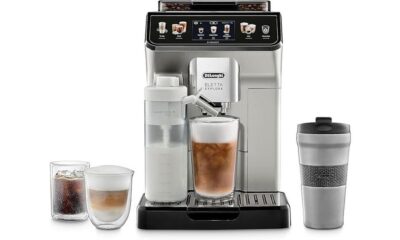
 Espresso Machines Reviews2 weeks ago
Espresso Machines Reviews2 weeks agoDeLonghi Eletta Explore: A Comprehensive Review [2025]
-

 Espresso Machines Reviews3 weeks ago
Espresso Machines Reviews3 weeks agoILAVIE 20 Bar Espresso Machine Review (2025)
-

 Espresso Machines Reviews3 weeks ago
Espresso Machines Reviews3 weeks agoSUMSATY Espresso Machine Review (2025)
-
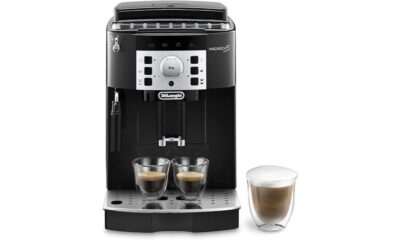
 Espresso Machines Reviews2 weeks ago
Espresso Machines Reviews2 weeks agoDeLonghi Magnifica S ECAM22.110.B Review: A Coffee Lover's Dream [2025]
-
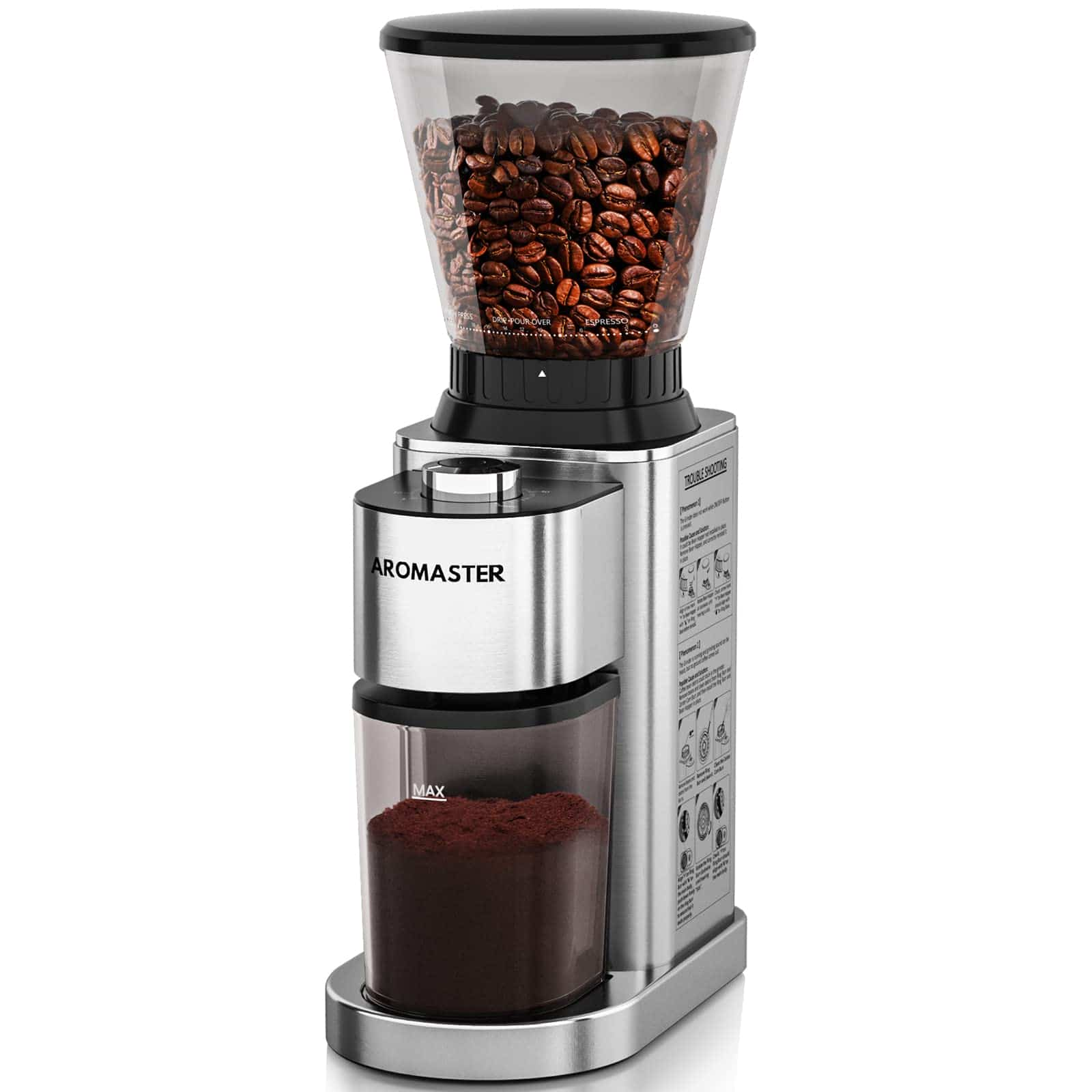
 Coffee Grinders Reviews3 weeks ago
Coffee Grinders Reviews3 weeks agoAromaster Burr Coffee Grinder Review (2025)
-

 Espresso Machines Reviews3 weeks ago
Espresso Machines Reviews3 weeks agoMAttinata Espresso Machine Review (2025)
-
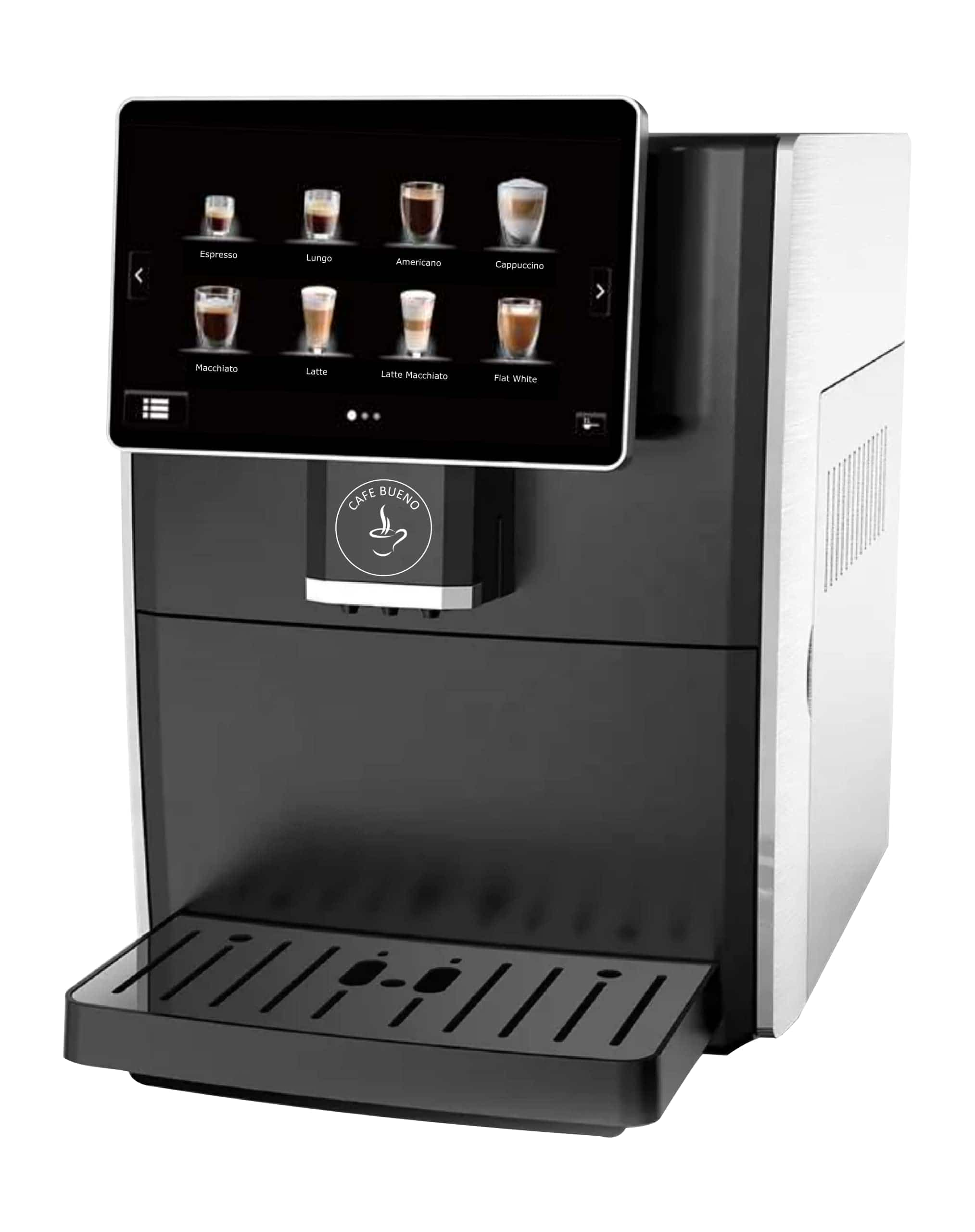
 Espresso Machines Reviews3 weeks ago
Espresso Machines Reviews3 weeks agoCafe Bueno Super Automatic Espresso Machine Review (2025)
-
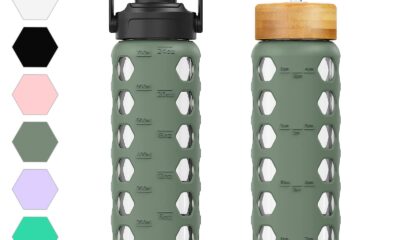
 Cappuccino Oracle Selected Reviews2 weeks ago
Cappuccino Oracle Selected Reviews2 weeks agoBest Glass Water Bottles for Eco-Friendly Hydration [2025]







